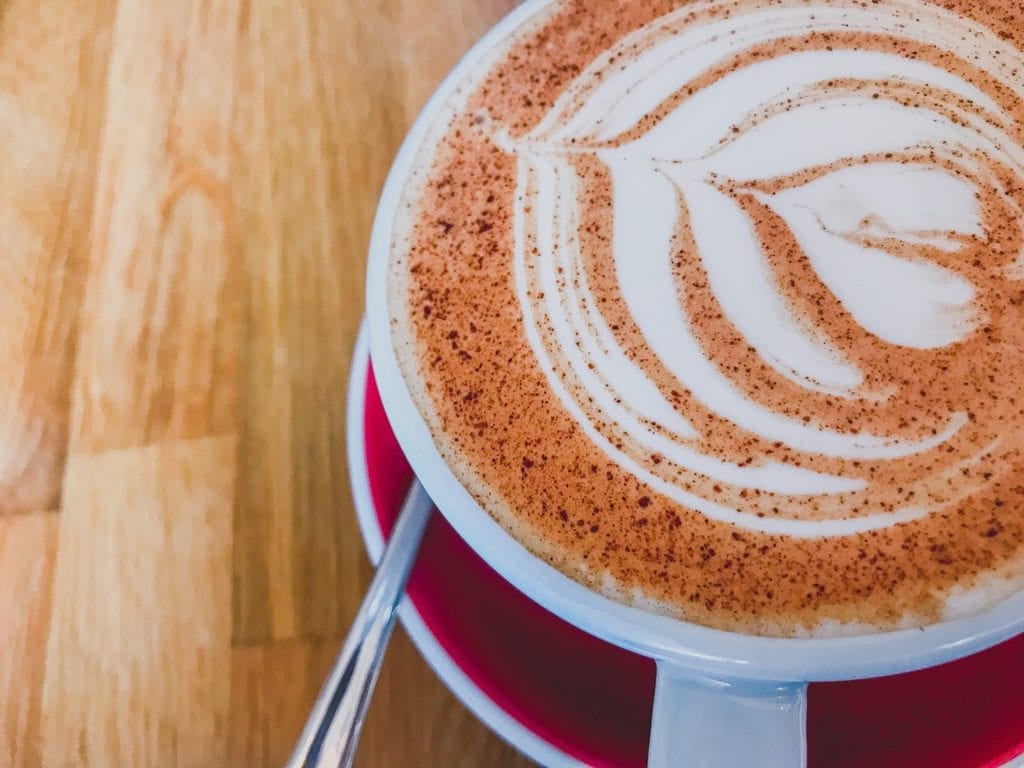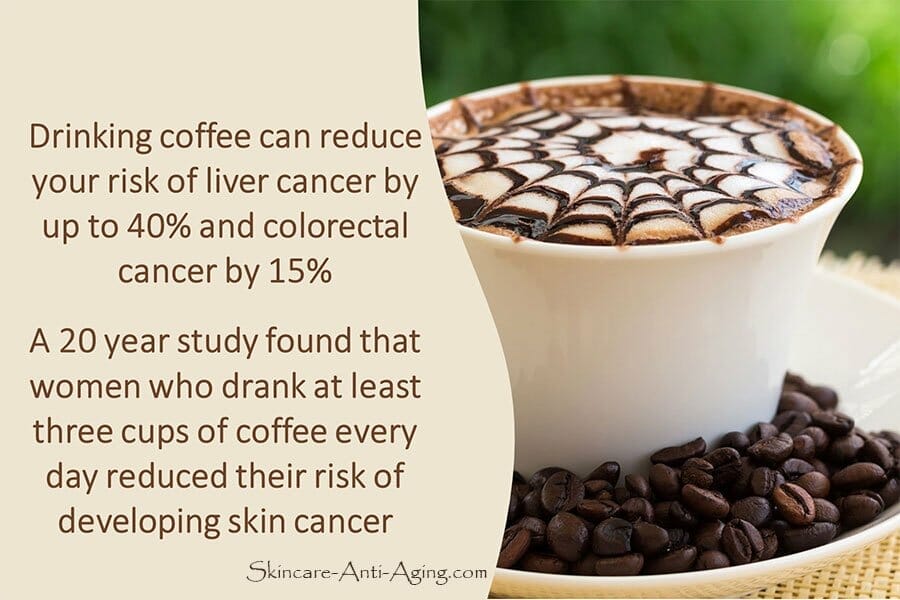9 Reasons to Why Coffee Addiction is Okay: Coffee Addicts Rejoice!
Coffee does more than just help you awaken. This is a short-term benefit, but caffeine really has many favourable properties when it’s consumed in moderate quantities daily. Next time that somebody gives you a hard time about your dependence on java struck them with all these facts and continue to sip on your favourite coffee drink. Tropika Club shares 9 good reasons to why it is okay to drink coffee on a regularly basis, even if it means you are getting addicted. Now you can drink coffee on a daily basis!
Table of Contents
- No Time to Read? Here’s a Snappy Summary of This Article
- 1. Improved Energy Levels
- 2. Physical Strength is Improved by Drinking Coffee
- 3. Drinking Coffee Can Burn off Some Fat
- 4. Drinking Coffee Can Reduce the Risk of Cancers
- 5. Drinking Coffee Can Reduce the Risk of Alzheimer’s
- 6. Drinking Coffee Boosts your Mood and helps with Depression
- 7. Drinking Coffee Relieves Stress, with just the Smell!
- 8. Drinking Coffee Keeps You Focused
- 9. Coffee is Just Tasty!
- Conclusion
- Meanwhile, Check Out Tropika Club’s Ecosystem of Websites
No Time to Read? Here’s a Snappy Summary of This Article
- Improved Energy Levels: Coffee can help you stay alert and focused by blocking the effects of adenosine, a chemical that promotes sleep, and stimulating the production of adrenaline, a hormone that boosts energy.
- Physical Strength is Improved by Drinking Coffee: Coffee can enhance your exercise performance by mobilizing fatty acids from the fat tissue and reducing the perception of effort, allowing you to work harder and longer.
- Drinking Coffee Can Burn off Some Fat: Coffee can increase your metabolic rate and help you burn more calories by stimulating the nervous system and activating the breakdown of fat cells.
- Drinking Coffee Can Reduce the Risk of Cancers: Coffee can lower the risk of developing certain types of cancers, such as liver, colorectal, and breast cancer, by modulating the expression of genes involved in inflammation, DNA repair, and cell cycle regulation.
- Drinking Coffee Can Reduce the Risk of Alzheimer’s: Coffee can protect your brain from cognitive decline and neurodegeneration by enhancing the function of brain-derived neurotrophic factor (BDNF), a protein that supports the survival and growth of neurons.
- Drinking Coffee Boosts your Mood and helps with Depression: Coffee can improve your mood and mental health by increasing the levels of dopamine, serotonin, and noradrenaline, neurotransmitters that regulate emotions, motivation, and pleasure.
1. Improved Energy Levels
Coffee is one of the most widely consumed beverages in the world, and it’s no surprise why: caffeine, the active ingredient in coffee, is a natural stimulant that can help improve energy levels. When consumed, caffeine blocks the effects of adenosine, a chemical in the brain that promotes sleep and relaxation. This leads to an increase in the activity of neurons, which in turn stimulates the production of adrenaline, a hormone that can help improve energy levels. Additionally, caffeine can also improve mental alertness, reaction time, and overall cognitive function, making it a great choice for anyone looking to stay focused and productive throughout the day. However, it’s important to note that while moderate caffeine consumption can have many benefits, excessive caffeine intake can lead to negative side effects such as anxiety, jitteriness, and disrupted sleep patterns. So, if you’re looking for a natural way to improve your energy levels, drinking a cup of coffee may just do the trick!

2. Physical Strength is Improved by Drinking Coffee
Fatty acids are mobilised from the fat tissue, and this may increase exercise performance by roughly 12% on average. Caffeine is the go-to supplement for many athletes. Due to its positive effects on exercise performance, some organisations — such as the NCAA — have even started to ban it in high doses. One study found that 9.8 mg/lb (4.45 mg/kg, or about 400 mg total) of caffeine increased endurance in athletes. In a 1,500-meter run, regular coffee drinkers were 4.2 seconds faster than those drinking decaf. Another study found that coffee helped reduce the perception of effort, allowing athletes to work harder.

3. Drinking Coffee Can Burn off Some Fat
Have you ever heard of the idea that coffee can help you burn fat? It might sound too good to be true, but there is actually some science behind it. Coffee contains caffeine, a stimulant that can increase your metabolic rate. This means that when you drink coffee, your body may burn more calories than it would otherwise. Additionally, caffeine can also help to suppress your appetite, which means that you may eat less and consume fewer calories overall.
There have been several studies conducted on the connection between coffee and weight loss. One study found that people who drank coffee before exercising burned more calories than those who didn’t. Another study found that people who drank coffee regularly had a lower body mass index (BMI) than those who didn’t.
However, it’s important to note that drinking coffee alone is not a magic solution for weight loss. In order to lose weight, you still need to maintain a calorie deficit by consuming fewer calories than you burn. Additionally, too much caffeine can have negative side effects, such as anxiety and insomnia. So, while coffee can potentially aid in weight loss, it should be consumed in moderation and as part of a balanced diet and exercise routine.

Read Also:
6 Tips to Stay Healthy While Staying Home
4. Drinking Coffee Can Reduce the Risk of Cancers
Coffee Consumption and Cancer Risk: Is There a Connection?
Coffee is one of the most widely consumed beverages in the world. While it has been the subject of debate in the past, recent research suggests that moderate coffee consumption may have a protective effect against certain types of cancer. Here’s what you need to know:
What the Studies Say
- Studies have found a link between coffee consumption and a reduced risk of liver, colorectal, and endometrial cancers.
- One study found that individuals who drank 3-4 cups of coffee per day had a 19% lower risk of developing liver cancer compared to those who drank no coffee.
- Another study found that individuals who drank 2-3 cups of coffee per day had a 13% lower risk of developing colorectal cancer compared to those who drank less than 1 cup per day.
- A review of studies also suggested that coffee consumption may be associated with a reduced risk of breast, prostate, and ovarian cancers.
How Coffee Might Help
While the exact mechanism is not entirely clear, there are several ways in which coffee might help reduce the risk of certain types of cancer:
- Coffee contains antioxidants and other bioactive compounds that may help protect against cancer.
- Coffee consumption has been associated with a reduced risk of insulin resistance and type 2 diabetes, which are risk factors for certain types of cancer.
- Coffee may also have a protective effect on the liver, which is important for metabolizing toxins and other potentially harmful substances.
Important Considerations
While the research suggests that moderate coffee consumption may have a protective effect against certain types of cancer, it’s important to keep a few things in mind:
- Drinking coffee is not a substitute for other healthy behaviors, such as maintaining a healthy diet, exercising regularly, and not smoking.
- The protective effect of coffee may be influenced by other factors, such as age, sex, and genetics.
- Drinking excessive amounts of coffee can have negative health consequences, such as increasing anxiety and disrupting sleep.

5. Drinking Coffee Can Reduce the Risk of Alzheimer’s
Alzheimer’s disease is a progressive neurodegenerative disease that affects memory and cognitive function. While there is currently no cure, research suggests that certain lifestyle factors, such as diet and exercise, may help reduce the risk of developing the disease. Here’s what we know about the relationship between coffee consumption and Alzheimer’s disease:
The Research Behind Coffee and Alzheimer’s
- Several studies have suggested that regular coffee consumption may be associated with a reduced risk of Alzheimer’s disease.
- One study found that individuals who drank 3-5 cups of coffee per day had a 65% lower risk of developing Alzheimer’s disease compared to those who drank little or no coffee.
- Another study found that older adults who drank 2-3 cups of coffee per day had a lower risk of developing cognitive impairment compared to those who did not drink coffee.
- A review of studies also suggested that coffee consumption may be associated with a reduced risk of Parkinson’s disease, another neurodegenerative disorder.

6. Drinking Coffee Boosts your Mood and helps with Depression
Coffee is one of the most widely consumed beverages in the world, and it’s no surprise that many people turn to coffee to help them start their day and boost their energy levels. However, did you know that drinking coffee can also have mood-boosting benefits? Here’s what you need to know:
The Science Behind Coffee and Mood
- Studies have suggested that coffee consumption may be associated with a reduced risk of depression and suicide.
- One study found that individuals who drank 4 or more cups of coffee per day had a lower risk of depression compared to those who drank little or no coffee.
- Another study found that caffeine, the active ingredient in coffee, may help stimulate the release of mood-enhancing neurotransmitters like dopamine and serotonin.

7. Drinking Coffee Relieves Stress, with just the Smell!
Many people drink coffee for its energizing and uplifting effects. But did you know that the aroma of coffee alone can also provide stress relief? Here’s what you need to know:
The Science Behind Coffee’s Aroma and Stress Relief
- Studies have found that simply inhaling the aroma of coffee can help reduce stress levels.
- Aromatherapy with coffee has been found to decrease stress levels in rats, and a study in humans found that the scent of coffee could activate brain regions responsible for stress relief.
- Researchers believe that coffee’s aroma may help reduce stress by altering the activity of certain genes in the brain that are associated with stress and anxiety.
Other Benefits of Coffee Aromatherapy
In addition to reducing stress, there are other benefits of coffee aromatherapy:
- The aroma of coffee has been found to improve cognitive function and increase alertness.
- Coffee aromatherapy has also been found to improve mood and reduce fatigue.
- Aromatherapy with coffee may be a safe and natural way to promote relaxation and relieve stress without the potential side effects of medication.

8. Drinking Coffee Keeps You Focused
Do you find yourself struggling to stay focused and alert during the day? Drinking coffee may be able to help you stay on task. Here’s what you need to know:
The Science Behind Coffee and Focus
- Coffee contains caffeine, a natural stimulant that can help increase alertness and focus.
- Caffeine works by blocking adenosine, a chemical in the brain that causes drowsiness.
- Studies have found that caffeine can improve cognitive function, including memory, attention, and reaction time.
Other Benefits of Coffee for Focus
In addition to improving focus, there are other benefits of drinking coffee:
- Coffee can help boost energy levels, allowing you to power through your day.
- Regular coffee consumption has been linked to a reduced risk of cognitive decline and Alzheimer’s disease.
- Moderate coffee consumption has also been linked to a reduced risk of depression and suicide.

9. Coffee is Just Tasty!
You have to admit it – coffee is just tasty! Can’t decide between coffee and tea? In Hong Kong, you don’t have to. Vendors all over Hong Kong guard their secret recipes for this drink – and the ratio of tea to coffee is considered a delicate balance. The name “yuenyeung” – which literally translates to lovebirds tea – is actually named after mandarin ducks (though some believe it’s about yin and yang), which are very different in appearance, but balance each other perfectly. This drink, if made properly, should taste neither like tea nor coffee, but rather, according to some, more of a cross between chai and hot chocolate.

Conclusion
So, there you have it: 9 reasons to why coffee addiction is okay. Of course, we’re not saying that you should drink coffee all day long and neglect other aspects of your health. Everything in moderation, right? But if you enjoy a cup or two (or three) of coffee every day, you can rest assured that you’re not only satisfying your taste buds, but also doing your body and mind a favour. Coffee is more than just a drink; it’s a lifestyle, a culture, and a source of joy for many people around the world. And we at Tropika Club Magazine are proud to be part of that community.
We hope you enjoyed this article and learned something new about coffee. If you did, please share it with your fellow coffee lovers and let us know what you think in the comments below. And if you’re looking for more articles on all things local in Singapore, be sure to check out our website and follow us on our social media platforms. We’re always updating our content with fresh and exciting stories that showcase the best of what our country has to offer. Whether you’re looking for beauty tips, lifestyle advice, places to visit, eats to try, or events to attend, we’ve got you covered. Tropika Club Magazine is your ultimate guide to living well in Singapore. Thanks for reading and stay caffeinate.

Frequently Asked Questions (FAQ)
Q: How much coffee is too much coffee?
A: There is no definitive answer to this question, as different people may have different levels of tolerance and sensitivity to caffeine. However, some general guidelines suggest that consuming up to 400 mg of caffeine per day (equivalent to about four cups of brewed coffee) is safe for most healthy adults. Consuming more than this amount may cause adverse effects such as insomnia, anxiety, irritability, headaches, and heart palpitations.
Q: What are some alternatives to coffee if I want to cut down on my caffeine intake?
A: If you want to reduce your caffeine consumption, you can try switching to decaffeinated coffee, which still contains some of the beneficial compounds found in regular coffee. You can also opt for other beverages that have less or no caffeine, such as herbal teas, fruit juices, or water. However, be aware that some drinks that may seem caffeine-free, such as chocolate or energy drinks, may actually contain some caffeine.
Q: Where can I find the best coffee in Singapore?
A: Singapore has a vibrant and diverse coffee culture, with a range of options to suit different preferences and budgets. Whether you’re looking for traditional kopi at a local hawker centre, specialty coffee at a hipster cafe, or international brands at a shopping mall, you’ll be spoilt for choice. Some of the popular places to get your coffee fix in Singapore include Coffee Addiction at Capitol Singapore, Chye Seng Huat Hardware at Jalan Besar, Nylon Coffee Roasters at Everton Park, and Starbucks Reserve at Jewel Changi Airport. You can also check out our article on the Top 25 Great Cafes in Bishan, Toa Payoh, Braddell and Thomson Region of Singapore for more recommendations.
Q: How can I make my own coffee at home?
A: Making your own coffee at home can be a fun and rewarding experience, as well as a way to save money and customize your brew. There are many methods and equipment you can use to make your own coffee, depending on your preference and budget. Some of the common ways to make coffee at home include using a drip filter machine, a French press, a pour-over cone, an AeroPress, a moka pot, or an espresso machine. You’ll also need to choose the right beans, grind size, water temperature, and brewing time for your desired outcome. You can find more tips and tutorials on how to make your own coffee at home online or from books and magazines.

Have an Article to Suggest?
Tropika Club is always looking for new and exciting content to feature in their magazine and they value the input of our readers. If you have any noteworthy content or articles that you believe would be a great addition to Tropika Club’s magazine, we are open to suggestions and encourage you to reach out to us via email at [email protected]. By doing so, Tropika Club values your expertise and knowledge in the matter and appreciates your willingness to help. We will review your recommendations and update our list accordingly
Meanwhile, Check Out Tropika Club’s Ecosystem of Websites

Tropika Club Magazine – Tropika Club Magazine is a Singapore-based publication that features articles on a wide range of topics with a focus on local businesses and content for the region. The magazine emphasizes supporting local businesses through its #SupportLocal initiative, which includes coverage of everything from neighborhood hawker stalls to aesthetic clinics in town. In addition to highlighting local businesses, Tropika Club Magazine also covers a variety of local content, including beauty, lifestyle, places, eats, and what’s on in Singapore and the Asia Pacific region.
Tropika Club Deals – Tropika Club Deals is a leading online deals and voucher shopping site in Singapore, offering amazing discounts on beauty, wellness, and fitness products and services. It’s the perfect platform for customers who want to discover the best deals without having to commit to a specific appointment date and time. These deals are available at major beauty stores, facial salons, hair salons, and other brands in Singapore, with no minimum spend required. Choose from guaranteed discounted deals in the categories of hairstyling, hair removal, facial & aesthetics, body slimming, brows & lashes, nails & makeup, massage & spa or fitness & wellness. Tropika Club Deals is also ideal for customers who want to buy vouchers as gifts or to use for the future. So whether you’re looking to save money on your next haircut or want to treat yourself to a relaxing massage, Tropika Club Deals has got you covered with the best voucher and coupon deals in Singapore!




